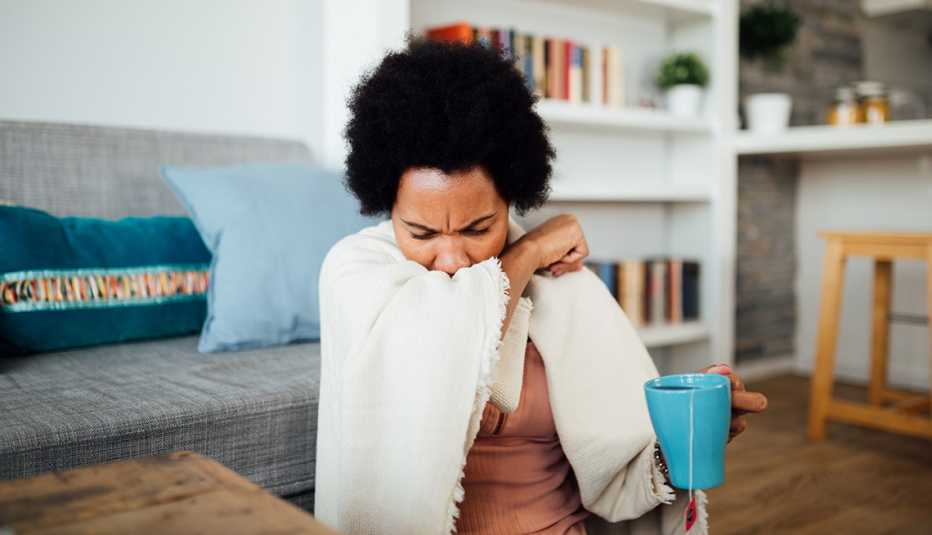AARP Hearing Center


It’s pretty common to develop a cough or an upper respiratory infection in the winter. Most of the time you get over it quickly. But sometimes a winter illness can develop into pneumonia, a lung infection that is particularly dangerous for older adults.
In a typical year, about 1.4 million Americans go to the emergency room with pneumonia and more than 41,000 people die of the disease, according to the Centers for Disease Control and Prevention (CDC).
Pneumonia can cause severe illness in people of any age, but children under age 5 and older adults are the most vulnerable. A 2022 National Health Statistics report found about 5 percent of patients aged 18 to 44 died while hospitalized for pneumonia; that share jumped to 11 percent among patients 65 and older.
People who smoke, have weak immune systems or suffer from chronic conditions such as lung disease or heart disease are at higher risk for complications from the illness.
Pneumonia causes and diagnosis
Pneumonia can be caused by bacteria, fungi or viruses, including the ones that cause the flu, respiratory syncytial virus (RSV) and COVID-19.
The vast majority of people with pneumonia have bacterial infections, but recent data suggests that viruses cause more cases than doctors previously realized. Bacterial pneumonias tend to be more severe than those caused by viruses.
It’s not unusual to develop bacterial pneumonia while your body is fighting a viral infection, says Todd Rice, M.D., professor of medicine and director of the medical intensive care unit at Vanderbilt Medical Center in Nashville, Tennessee.
Pneumonia is diagnosed with a chest X-ray or CT scan. Your doctor may also send your blood and a mucus sample to a lab for a culture to try to determine what type of bacteria or virus is the culprit.




































































More From AARP
How Older Adults Can Survive the Quad-emic
Lower your risk of illness amid the convergence of COVID, flu, RSV and norovirus
Why Extreme Cold is Dangerous for Older Adults
Low temps pose unique risks for many aging individuals. Here's why
Is My Chronic Cough Reason to Worry?
A doctor explains the top reasons for a cough that won't go away